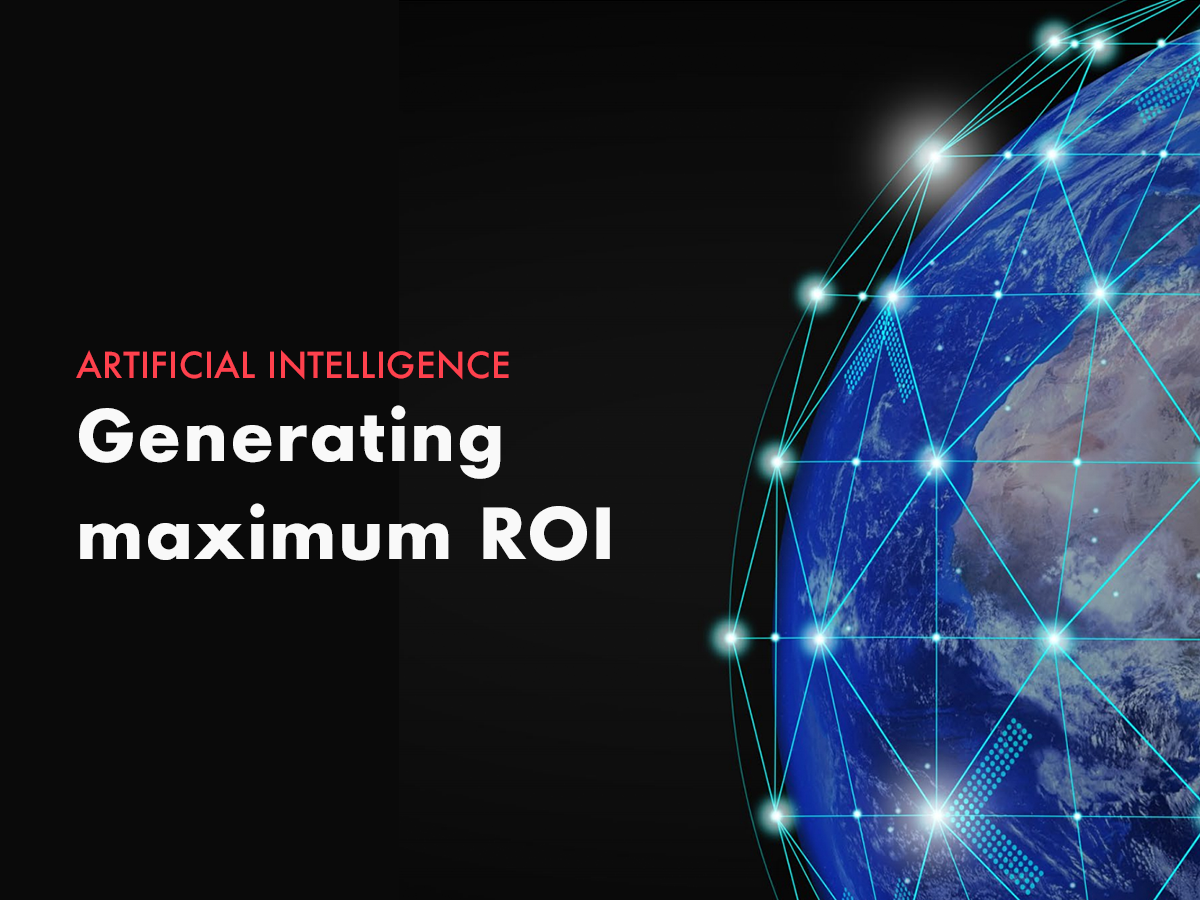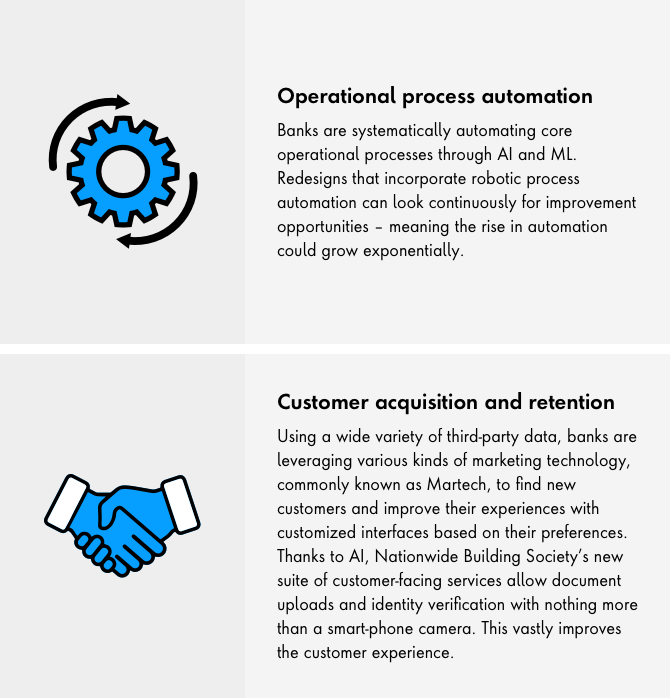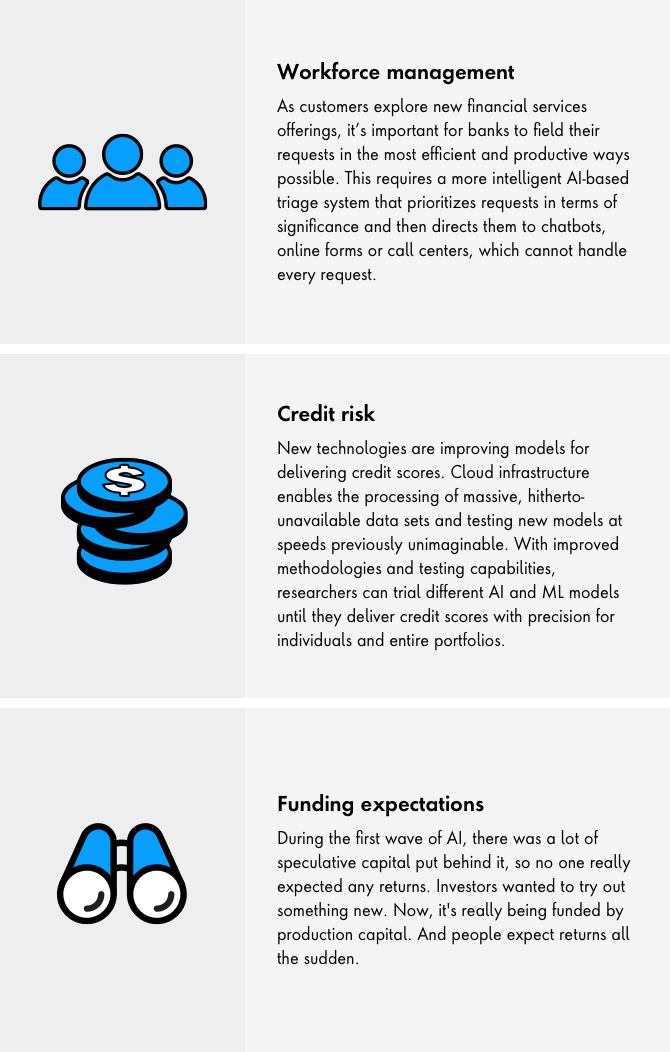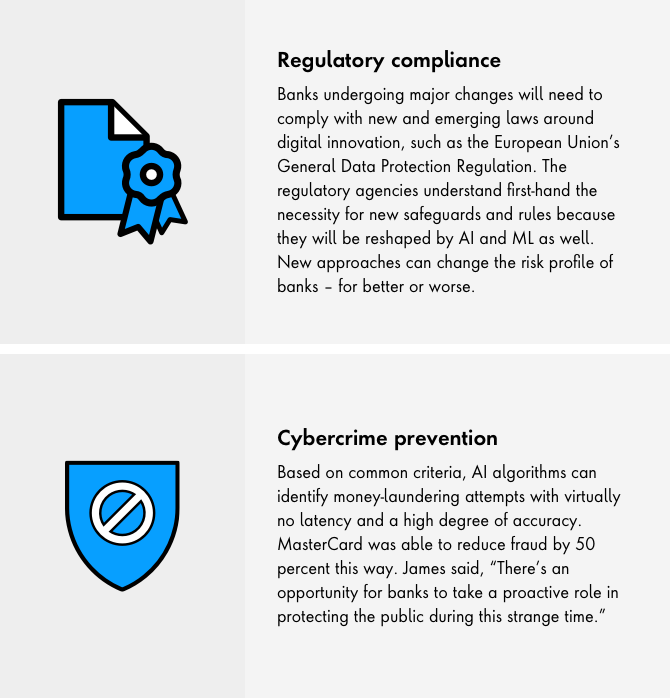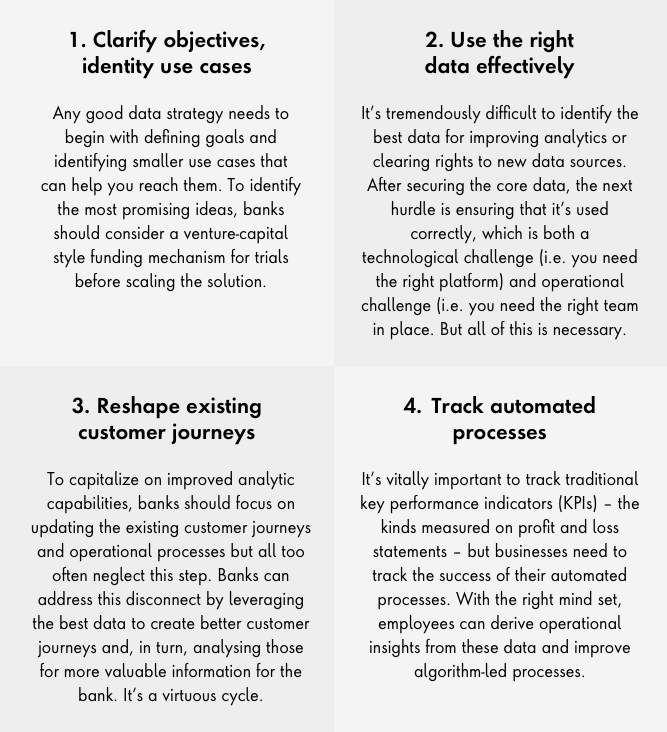Downstream changes
In 2018, the European Union’s second Payment Services Directive (PSD2) and the United Kingdom’s Open Banking directive forced the large financial institutions to share their valuable customer data. The British version was designed to break up the dominance of the UK’s Big Four banks – Barclays, Lloyds Banking Group, HSBC and Royal Bank of Scotland – but their market share was largely unaffected.
Some capitalized on the opportunity to access the banks’ data. For instance, accounting solution providers like Xero and Intuit expanded the reach of their offerings and payment service providers like Tink created platforms to help banks. And though UK challengers like Monzo and Starling Bank launched competitive products, the Big Four’s initial fears about Big Tech encroaching on their space were unfounded.
“Technology giants like Facebook or Amazon have not (yet) launched their own banks or started to produce mortgages,” James said. “The companies that registered for open banking offered a mix of services such as accountancy software and payment solutions but we are yet to see a breakaway from established business models of the past to significantly impact large banks’ share.”
That has actually been helpful. Without human directions, recent AI programs can work through a small business or individual’s financial paperwork and let them know where they aren’t compliant with regulations.
Again, the public was expecting major changes and threats to consolidated power in FS. But what it got was modest but helpful solutions around compliance – not a colossal sea change.










